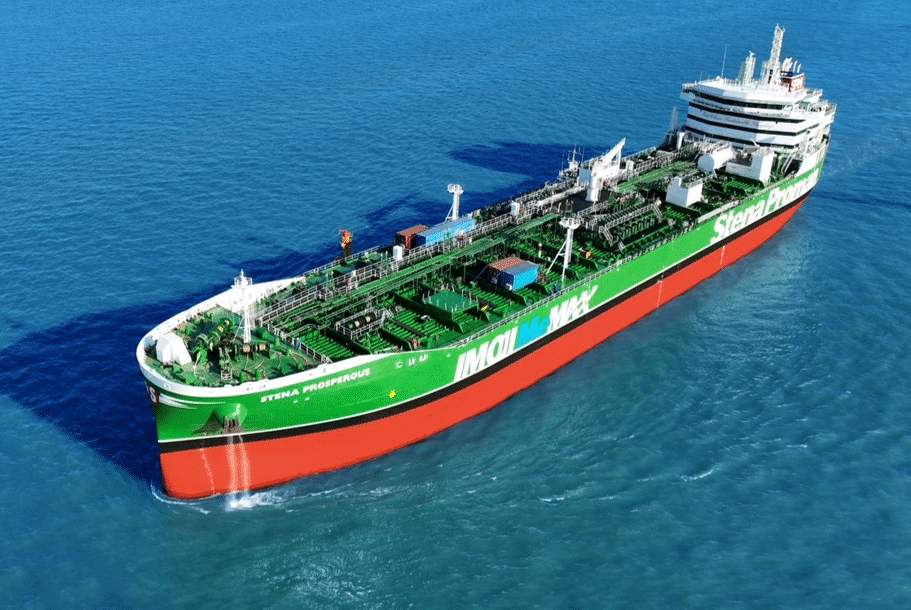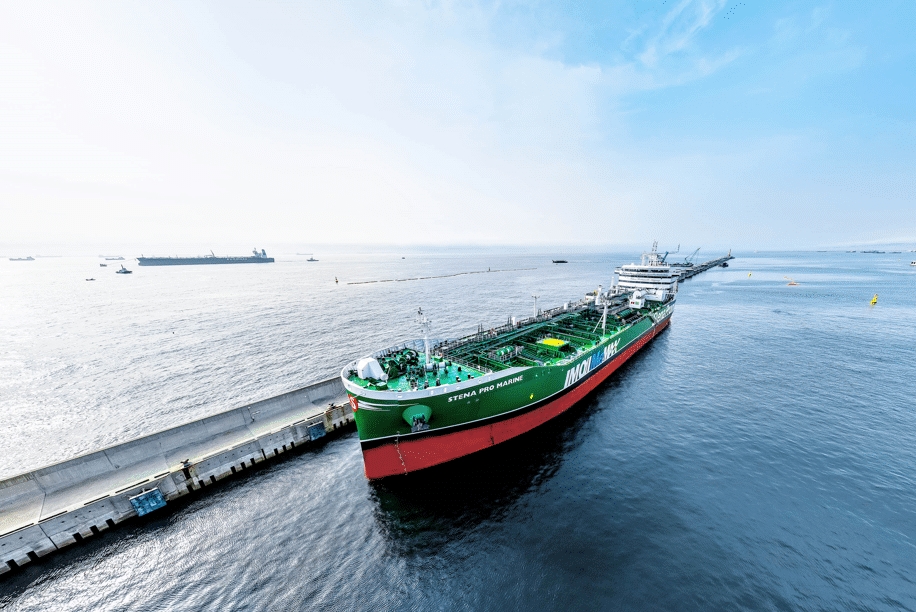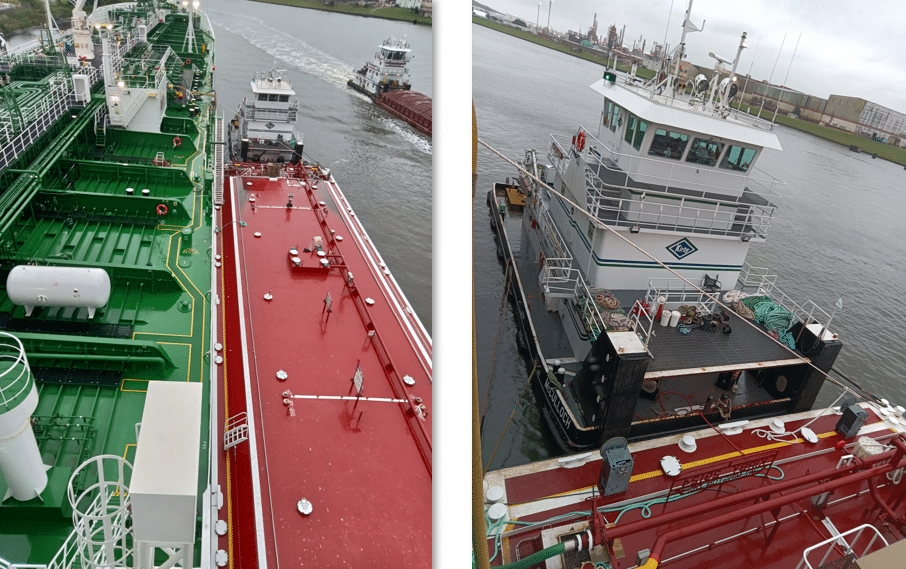Proman Stena Bulk, the joint venture between tanker company Stena Bulk and methanol producer Proman, successfully completed the first barge-to-ship methanol bunkering on the US Gulf Coast. The JV tankers Stena Pro Marine and Stena Prosperous were refueled with methanol via barge while discharging petroleum products at a terminal in the Port of Houston in the first week of April.

Stena Pro Marine was bunkered with 1,408MT of methanol, and Stena Prosperous was refueled with 1,203MT during the operation. Both ships were time-chartered to a global trading house at the time of the refueling.
The barge bunkering operation was conducted jointly with Kirby Corporation, the largest tanker barge provider in the United States. The ability to refuel both vessels with methanol while they were alongside demonstrates the ease and minimal infrastructure requirements associated with methanol as a marine fuel, as well as its widespread availability, the participants said.

Methanol is widely available in the Port of Houston, which is the United States’ busiest port in terms of foreign tonnage. With the presence of major petrochemicals hubs and significant storage capacity, more than 275,000MT of methanol is available at the port.
The landmark first bunkering supports wider efforts by US ports and shipping companies to make the industry more sustainable. The Port of Houston aims to become carbon-neutral in the next 30 years. A key pillar of the port’s strategy is the deployment of alternative fuels and clean energy sources.
The bunkering also supports US commitments to cut methane emissions by 30% by 2030 under the Global Methane Pledge, which was announced at the COP26 climate summit in 2021. Methanol as a marine fuel supports the ambitions of the pledge to cut back on methane emissions across the energy value chain in the near term.

Currently, available conventional methanol, produced from natural gas, virtually eliminates SOx and particulate matter, cuts NOx by 80%, and reduces tank-to-wake CO2 emissions from the vessel’s commercial operations by up to 15% compared to conventional marine fuels. By using methanol, the joint venture vessels are future-proofed against every incoming emissions target, as greater quantities of low-carbon and green methanol become available for blending and bunkering in the near future.
Production of green methanol from sustainable sources such as sustainable bio-mass or renewable energy is growing and highly scalable. Proman is investing in its own low-carbon and green methanol production capabilities, including a new 100,000 tonne per year methanol facility in development in North America. The project is currently being constructed with a target start of operations in 2025. The facility will produce bio-methanol from non-recyclable forestry residues and municipal solid waste and will substantially contribute to the circular economy.
This first US Gulf methanol barge-to-ship bunkering comes ahead of the naming ceremony for Stena Promise in the Port of Rotterdam. Rotterdam was the site of Proman Stena Bulk’s first barge-to-ship methanol bunkering, in August 2022, when Stena Pro Patria took on the fuel during a regularly scheduled port call.